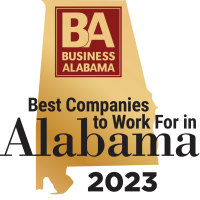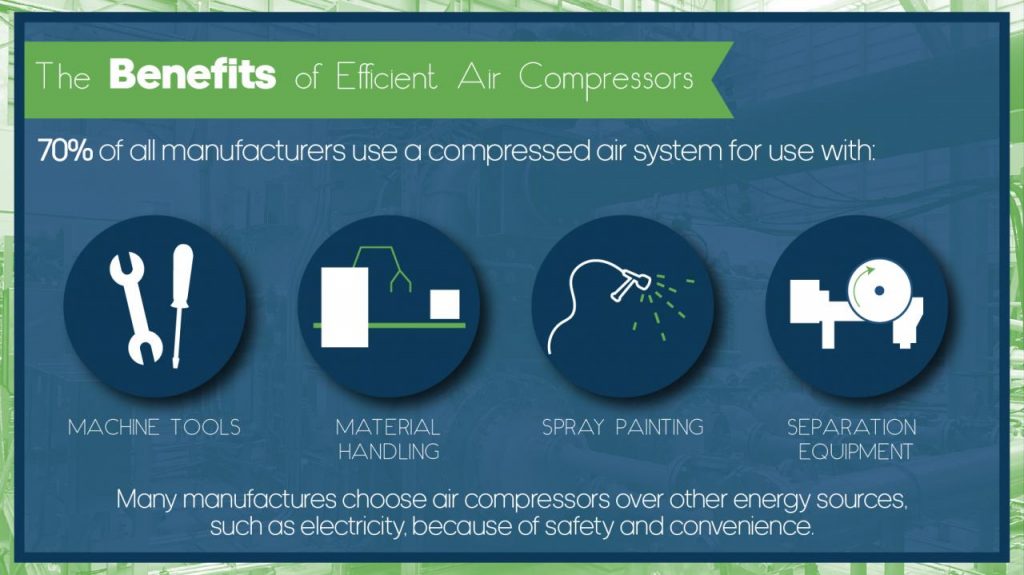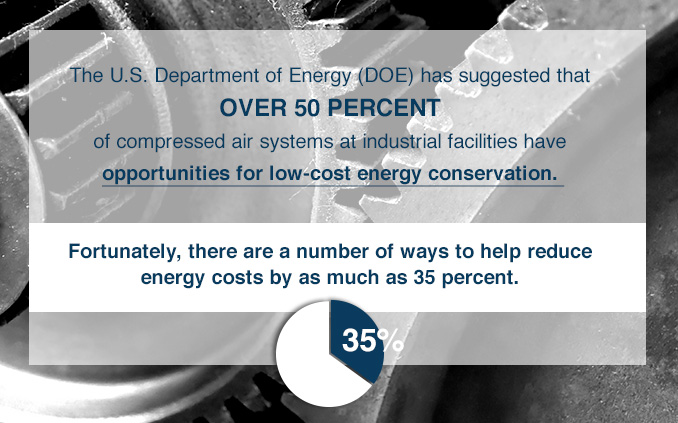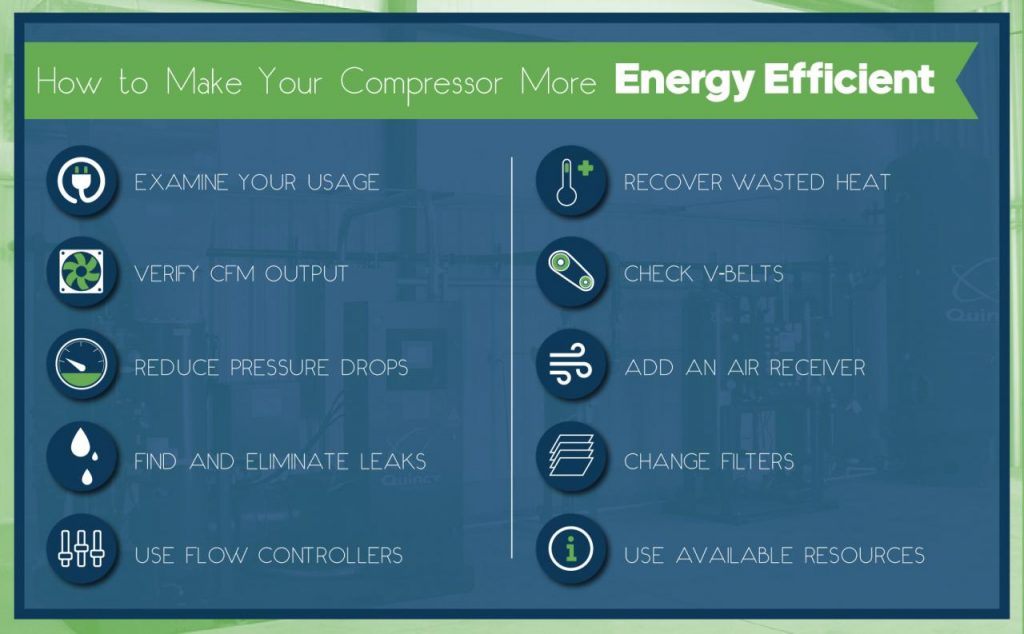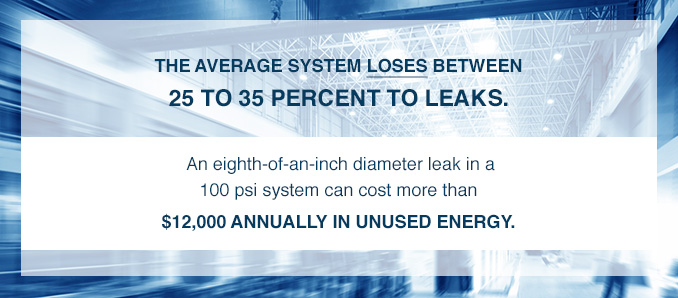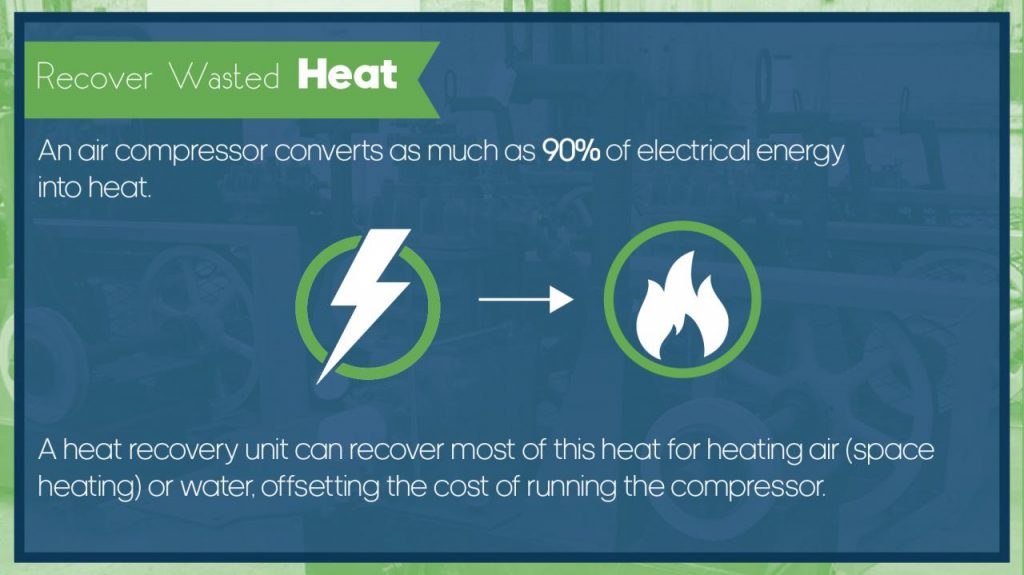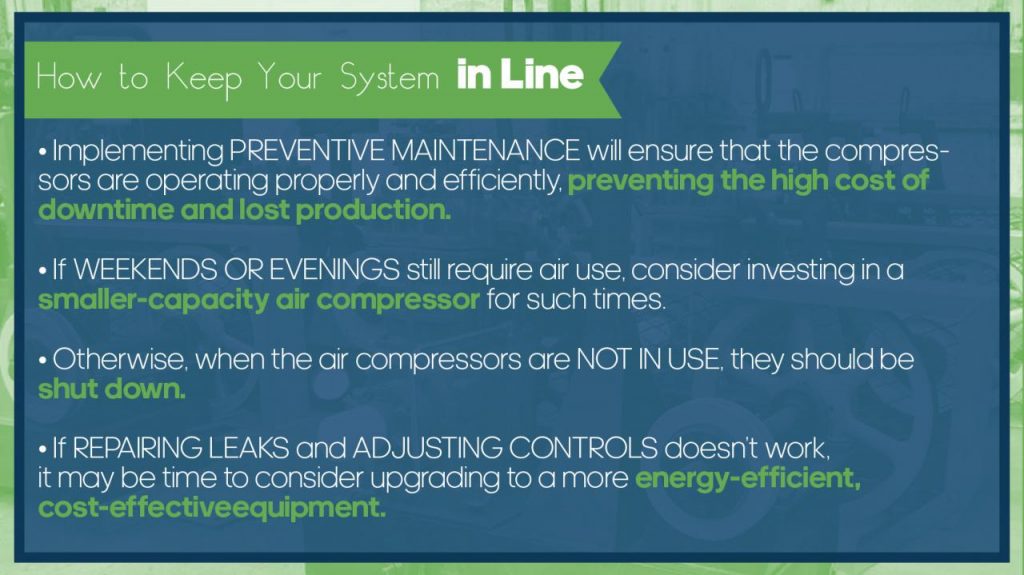Table of Contents

There are many uses of compressed air. In fact, 70 percent of all manufacturers use a compressed air system, for use with machine tools, material handling, as well as spray painting and separation equipment. One reason for that popularity is the safety and convenience of using air as a resource, as opposed to other energy sources such as electricity.
An air compressor can also function at high temperatures and in locations where explosions and fire hazards restrict other forms of energy. Air can be generated on site, so there’s more control over usage and air quality.
Also, air compressors can run tools and equipment that generate more power than normal tools. When using pneumatic tools, an air compressor becomes a vital part of your operation.
The most popular compressors are positive displacement compressors, which work by filling a chamber with air and then reducing volume. Positive displacement compressors include reciprocating, rotary screw and rotary vane compressors. Although reciprocating compressors are the most widely available on the market, rotary compressors are most useful in industrial environments.
Air compressors are a substantial investment for business owners, so the process of purchasing one requires consideration of many factors.
Contact Us Learn More Find a Dealer Near You
Why Air Compressor Efficiency Matters
Air compressor efficiency is important for a few reasons, including:
System Longevity
Many common air compressor inefficiencies come from leaks, incorrect compression and pressure loss. These factors can lead to excess wear on your system because the compressor has to work harder to meet your power requirements. As the compressor works harder, the system undergoes more strain and friction that wears components out faster.
When your air compressor is efficient throughout its life span, you can reduce maintenance requirements and potentially increase the system’s longevity.
Reduced Costs
Efficient air compressors can offer peak performance without excess energy usage. This fact means you can keep up with air compressor usage while saving on energy costs. For large-scale operations, saving on operational costs in any way is valuable for the business. Efficient air compressors are one of many ways you can cut costs and maximize profits.
Eco-Friendliness
The more efficient an air compressor is, the less energy it requires to run. Ultimately, less energy usage leads to lower emissions that pollute the environment. Lowering emissions is valuable for making the environment healthier for wildlife and humans.
Committing to air compressor efficiency can contribute to larger environmental goals within your operation, like reducing your carbon footprint. With more consumers pushing for greener business practices, efficient air compressors can also help improve your reputation among more environmentally conscious people.
The Benefits of Efficient Air Compressors
You can experience cost savings from using an efficient air compressor. But compressed air can be one of the most expensive forms of energy in a manufacturing plant, with eight horsepower of electricity generating one horsepower of compressed air. In fact, the annual cost of electrical power can often exceed the initial cost of the air compressor.
The U.S. Department of Energy (DOE) has suggested that over 50 percent of compressed air systems at industrial facilities have opportunities for low-cost energy conservation.
Fortunately, there are a number of ways to help reduce energy costs by as much as 35 percent.
The Benefits of Energy Efficiency
Studies have concluded that industrial plants waste roughly 30 percent of generated compressed air, which could equate to $9,600 for a typical scfm installation, or as much as $32,100 for 1,500 CFM. Estimates also indicate that poorly designed compressed air systems in the U.S. result in wasted utility payments of up to $3.2 billion.
Energy efficient air compressors will not only save money but will also help control pollution. A walk-through assessment can help identify conservation opportunities in your compressed air system.
Large-scale air emissions are released when electricity is produced. Reducing the electricity needed for compressed air systems can help significantly improve air quality.
Many industrial compressors use oil for lubrication, creating an oil and water mixture called condensate, which contains hydrocarbons and other harmful contaminants that require proper disposal in accordance with government guidelines. Oil water separators, used in condensate management systems, can help efficiently remove waste. An outside waste management company can help dispose of compressor condensate.
How to Make Your Compressor More Energy Efficient
The largest cause of energy waste results from unused, or leaked, compressed air. Heat loss is also a large component of wasted energy in the air compression process. With energy costs doubling in the last five years, it couldn’t be more crucial to make your compressor more energy efficient.
Here are some of the ways you can reap the benefits of compressed air:
Examine Your Usage
The main causes of inefficiencies are the following:
- Leaks
- Pressure drops
- Over pressurization
- Poor management of the compressor
You should begin your search for efficient compressed air by considering the following two questions:
- What are your compressed air costs?
- How much compressed air do you need?
Answering these questions should clarify whether or not you’re making efficient use of your air compressor. If you’re running your compressor at 100 percent while only using 50 percent of the maximum output, half of the energy used to power the compressor is wasted.
Generating a demand profile and quantifying the volume of air used for each application you allow you to make an assessment of peaks and low demand. This information will ultimately identify the best uses for the air.
A sketch of the compressed air system — compressors, air supply lines and end uses — should provide a helpful overall schematic of the process, and even help identify problems related to air storage, pressure loss, leaks and condensation drains.
Verify CFM Output
Due to problems with piston rings on reciprocating compressors and premature modulation on rotary screw compressors, many compressors don’t produce the CFM flow for which they’ve been rated. Failure in this area may be the result of an inaccurately adjusted valve. Calibration can help verify compressor output.
Reduce Pressure Drops
Air compression equipment should maintain low pressure drop for the duration of its service life. Total pressure drops across system components shouldn’t exceed 15 psi. If pressure loss in your system is more than 10 percent, you should evaluate the distribution system and identify the causes of excessive pressure drops.
Air distribution piping should be large enough in size to minimize this pressure drop. Installing a pressure regulator can limit air demand while reducing maintenance costs and extending tool life. Inlet air filters can prevent the kind of dirt that restricts airflow and causes pressure drops.
Find and Eliminate Leaks
The average system loses between 25 to 35 percent to leaks, so cost controls require routine monitoring and repairs. Air leaks can be the largest waste of compressed air energy at a manufacturing plant. For example, an eighth-of-an-inch diameter leak in a 100 psi system can cost more than $12,000 annually in unused energy.
If you don’t have a routine for regular leak inspections, you should put one in place. Maintenance personnel should have proper leak detection equipment. You can test your system with an ultrasonic leak detector during periods of nonproduction to determine overall leak rate by examining air loss from the supply tank. You may need a professional auditor to conduct a thorough leak audit.
Dust or sludge in a compressed air compression system can cause corrosion, which will increase the likelihood of leaks. Keep in mind that fixing a leak may increase system pressure, which means other unnoticeable leaks may grow. It takes routine maintenance to manage and control leaks.
Use Flow Controllers
Many air systems operate at high pressures to account for peaks in usage, and also to compensate for leaks, pressure drops and flow fluctuations. However, operating at high pressures can require as much as 25 percent more compressor capacity than needed, generating wasted air called artificial demand.
You can reduce the leakage rate by running the compressor at lower pressures. If you’re short on air, don’t turn up the pressure. Run your compressor at required pressures and not beyond what’s needed. A flow controller or pressure regulator, however, can store compressed air without having to distribute it until it’s needed.
Recover Wasted Heat
An air compressor converts as much as 90 percent of electrical energy into heat. A heat recovery unit, however, can recover most of this heat for heating air (space heating) or water, thereby offsetting the cost of running the compressor.
Space heating occurs when taking heated air to an area requiring heating. Space heating works by ducting the cooling air from the compressor to an area in need of heating; however, you should be careful not to exceed the manufacturer’s maximum back-pressure allowance when using ductwork.
Heated water can be stored for locker room showers and other conventional hot water applications. Waste heat recovery can be especially effective using an oil-cooled rotary screw air compressor package.
Check V-Belts
Routinely check v-belts for proper tightness because loose belts can reduce compressor efficiency.
Add an Air Receiver
Adding an air receiver tank will help buffer short-term demand chances, eliminating the need for on and off usage.
Change Filters
You should inspect and replace filters on a periodic basis to make sure the air quality is good and to prevent drops in air pressure.
Use Available Resources
The MnTAP Fact Sheet will help you calculate operating costs and identify energy efficiency strategies for your air compressor. The U.S. DOE Office of Industrial Technologies offers best practices to help industrial end users accomplish energy efficiency.
How to Keep Your System in Line
Just as increasing pressure can cause production inefficiencies like artificial demand and leaks, so will lowering side pressure without doing anything else. You should also audit the system to determine an acceptable operating balance point of pressure to satisfy production, within the compressor’s capability.
Understanding the capabilities of the system will help verify whether air compressors are too big for end uses, since the end use requires a small percentage of the pressure created.
If repairing leaks and adjusting controls proves insufficient, it may be time to upgrade to more energy-efficient, cost-effective equipment. We at Quincy can help you find the best products to meet your needs.
Keep in mind that energy savings from a more energy-efficient air compressor should help recover any increase in costs. So it makes sense to replace old technology with new, energy-efficient parts. We at Quincy are dedicated to helping your compressed air system run at peak performance while reducing your energy consumption and saving money.
Implementing preventive maintenance will ensure compressors are operating properly and efficiently, preventing the high cost of downtime and lost production. When not in use, they should be shut down. If weekends or evenings still require air, consider investing in a smaller-capacity air compressor for such times.
Green and Efficient Compressors From Quincy Compressor
Quincy has been around for about as long as air compressors have been manufactured. Over the last 100 years, we’ve grown into an international company with a reputation for quality and rugged reliability.
We’re not only designers of the QS1 series of rotary screw air compressors, but we also manufacture the following:
- Reciprocating air compressors
- Vacuum pumps
- An extensive line of air treatment components
Quincy air compressors are used around the world in industries ranging from oil and gas to food, automotive and farming.
Our technicians are compressed air equipment experts and are dedicated to addressing customer needs. Supported by a distribution network of more than 200 locations worldwide, Quincy offers one of the widest selections of compressed air equipment and parts available today.
Reliability and Efficiency
With Quincy air compressors, you can count on reliability and high performance for even the most demanding applications. We focus our efforts on the following:
- Increasing uptime
- Reducing unexpected repairs
- Improving the cleanliness of compressed air
- Reducing energy consumption
Our products offer high-efficiency motors, low initial pressure drops and decades of high-quality performance. Regardless of the systems and components you choose from our product line, you can expect impressive reliability and efficient energy usage.
Extensive Product Line
We offer a broad array of products, including a full range of rotary and reciprocating air compressors from ½ to 200 horsepower. We serve the compressed air needs of many industries such as the following:
- Oil and gas
- Light industry
- Automotive
- Marine
- HVAC
- Medical
- Food and beverage
Solutions
In our effort to prioritize the needs of our customers, we work hard to provide solutions. We continually introduce innovative products, so our end users can rely on us to meet evolving compressed air needs.
We also understand that efficiency relies on having the right system for your demands. Our team is experienced in air compressor system design and will help you build the right setup for your operation. With these solutions, you can support system longevity and reduce energy requirements.
At Quincy Compressor, we also value education to help you find solutions that align with your needs. If you’re looking for foundational knowledge on air compressors, visit our basics page for more information.
Support
We offer an extensive array of air compressor parts and services through our authorized dealer network and our direct store locations. Our established sales channels permit distribution around the world. Continued growth means our operations continue to expand globally.
In our effort to provide the best possible support, we offer the following:
- Cooler Cleaning. By power-washing your compressor fluid, we can lower operating temperatures and reduce the chance of unexpected breakdowns.
- Preventive Maintenance. Our EPA-certified technicians will help maintain the efficient operation of your compressed air system.
- Air Dryer Service. Our EPA-certified technicians will inspect and repair refrigerated air dryers.
- Replacement of Elements. We will ensure that all clean-up equipment is serviced and up-to-date.
- Tune Controls. With our extensive training and knowledge of compressed air equipment, our technicians can diagnose problems early, before they become costly problems later.
- Warranties. Quincy offers industry leading warranty programs, proving customers with a variety of products to protect the compressor. We also offer extended warranty plans for both reciprocating and rotary screw products.
These support services are an excellent way to keep your air compressor running efficiently. Catch the early signs of leaks to prevent excess power usage and keep your air compressor operating at peak performance.
Buy Efficient Compressors From Quincy Compressor
When considering new energy-efficient air compressors or an upgrade to more energy-efficient machinery, Quincy can help you make the right choices for your business. Our experience in the industry paired with our commitment to innovation allows us to deliver high-performance products for a wide range of needs. Contact your local dealer today.
Last Updated on July 31, 2023 at 2:40 PM

